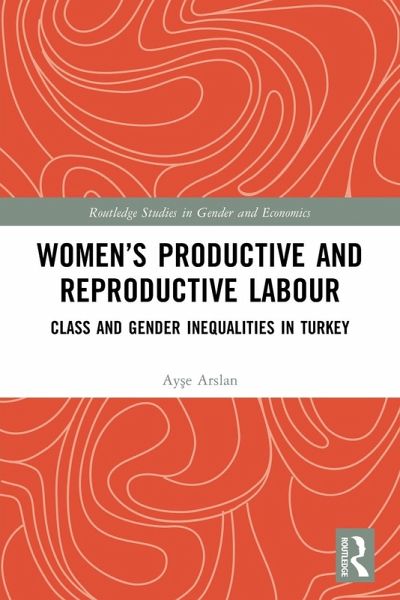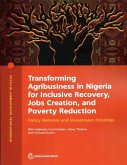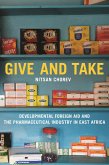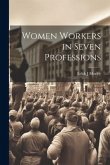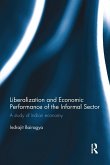- Broschiertes Buch
- Merkliste
- Auf die Merkliste
- Bewerten Bewerten
- Teilen
- Produkt teilen
- Produkterinnerung
- Produkterinnerung
Applying a feminist political economy and historical materialist approach and building on an ethnographic extended case study, this book analyses the relationships between class and gender across both the productive and reproductive realms at the macro and micro levels in the case of women garment workers in Turkey.
Andere Kunden interessierten sich auch für
![Transforming Agribusiness in Nigeria for Inclusive Recovery, Jobs Creation, and Poverty Reduction Transforming Agribusiness in Nigeria for Inclusive Recovery, Jobs Creation, and Poverty Reduction]() Elliot MghenyiTransforming Agribusiness in Nigeria for Inclusive Recovery, Jobs Creation, and Poverty Reduction42,99 €
Elliot MghenyiTransforming Agribusiness in Nigeria for Inclusive Recovery, Jobs Creation, and Poverty Reduction42,99 €![Sports Agents and Labour Markets Sports Agents and Labour Markets]() Giambattista RossiSports Agents and Labour Markets68,99 €
Giambattista RossiSports Agents and Labour Markets68,99 €![Give and Take Give and Take]() Nitsan ChorevGive and Take33,99 €
Nitsan ChorevGive and Take33,99 €![Employee Pensions Employee Pensions]() Employee Pensions26,99 €
Employee Pensions26,99 €![Women Workers in Seven Professions Women Workers in Seven Professions]() Edith J. MorleyWomen Workers in Seven Professions26,99 €
Edith J. MorleyWomen Workers in Seven Professions26,99 €![Liberalization and Economic Performance of the Informal Sector Liberalization and Economic Performance of the Informal Sector]() Indrajit BairagyaLiberalization and Economic Performance of the Informal Sector60,99 €
Indrajit BairagyaLiberalization and Economic Performance of the Informal Sector60,99 €![War-time Strikes and Their Adjustment War-time Strikes and Their Adjustment]() Alexander M. BingWar-time Strikes and Their Adjustment26,99 €
Alexander M. BingWar-time Strikes and Their Adjustment26,99 €-
-
-
Applying a feminist political economy and historical materialist approach and building on an ethnographic extended case study, this book analyses the relationships between class and gender across both the productive and reproductive realms at the macro and micro levels in the case of women garment workers in Turkey.
Hinweis: Dieser Artikel kann nur an eine deutsche Lieferadresse ausgeliefert werden.
Hinweis: Dieser Artikel kann nur an eine deutsche Lieferadresse ausgeliefert werden.
Produktdetails
- Produktdetails
- Verlag: Taylor & Francis
- Seitenzahl: 204
- Erscheinungstermin: 18. Dezember 2024
- Englisch
- Abmessung: 234mm x 156mm x 12mm
- Gewicht: 313g
- ISBN-13: 9780367710309
- ISBN-10: 0367710307
- Artikelnr.: 72110063
- Herstellerkennzeichnung
- Libri GmbH
- Europaallee 1
- 36244 Bad Hersfeld
- gpsr@libri.de
- Verlag: Taylor & Francis
- Seitenzahl: 204
- Erscheinungstermin: 18. Dezember 2024
- Englisch
- Abmessung: 234mm x 156mm x 12mm
- Gewicht: 313g
- ISBN-13: 9780367710309
- ISBN-10: 0367710307
- Artikelnr.: 72110063
- Herstellerkennzeichnung
- Libri GmbH
- Europaallee 1
- 36244 Bad Hersfeld
- gpsr@libri.de
Ay¿e Arslan is a lecturer in the Department of Political Science and Public Administration at Hacettepe University. She received her PhD from SOAS University of London. She won both the 2020 Leigh Douglas Memorial Prize (awarded by the British Society for Middle Eastern Studies (BRISMES)) and the 2019 Young Social Scientist Prize (awarded by the Turkish Social Sciences Association) for her PhD thesis. Her work focuses on class, gender, reproductive labour, labour regimes, working class organisation, the everyday and Turkey's political economy. She has published peer-reviewed journal articles and book chapters in English and Turkish.
List of Tables and Figures. Acknowledgements. List of Abbreviations.
Introduction. A Comprehensive, Relational Approach to Women's Productive
and Reproductive Labour in the Neoliberal Era. Garment Labour, Gender and
Social Reproduction. Methodology: An Ethnographic, Multi-Method Research.
Organisation of the Book. Gender and Class across the Realms of Production
and Social Reproduction from a Feminist Historical Materialist Perspective:
A Relational, Comprehensive Approach. Class As a Social Relation: A
Thompsonian Class Perspective. Marxist Feminist and Feminist Political
Economy Theories on Women's Unpaid Reproductive Labour. Labour in the Age
of Neoliberalism: Waged Labour, Social Reproduction and Gender. Conclusion.
Gender and Labour Relations in Turkey in the Neoliberal Age: Women's
Employment, Labour Informalisation and Women's Unpaid Reproductive Labour.
Neoliberal Transition and Women's Employment in Turkey. Relations of
Production, Labour Informality and Flexibilisation during the AKP Era.
Gendered Processes of Labour Informalisation and Women's Reproductive
Labour under Turkey's Neoliberal Conservative Hegemony. Conclusion.
Organisations of Production and Labour Regimes in the Garment Industry.
Factory Production. The Conditions of Factory Labour. Labour Control, Work
Pressure and Alienation of Labour. Sweatshop Production. The Conditions of
Sweatshop Labour. Syrian Refugee Workers and Child Workers in Sweatshops.
Home-Based Garment Production: The Organisation of Work and Labour
Conditions. Conclusion. Class beyond an Economic Location: Socio-Cultural
and Everyday Life, and Gender Dynamics in the Garment Industry. The
Socio-Cultural Atmosphere and Everyday Life on the Shop Floor. Workers'
Social Profiles and the Life Paths that Lead Them to Be a Garment Worker.
The Gendered Nature of Work and Everyday Life in the Garment Industry.
Gender Relationships and Sexual Harassment at Work. The "Bad" Image of
Women Garment Workers and Women's Control over Other Women. Conclusion.
Class as a Complex Set of Social Relations: Intra-Class Relationships in
the Garment Industry. Workplaces beyond Commodity Production. Different
Ethno-Cultural Identities on the Garment Shop Floor Intra-Class
Relationships under the Neoliberal Labour Regime and Patriarchy:
Competition or Solidarity? Conclusion. Housework and Care Work - Whose
Work?: Women Garment Workers' Reproductive Labour. Productive and
Reproductive Work Together: The Unequal Division of Labour at Home. The
Interplays between Reproductive and Productive Work. Mothers, Sisters,
Daughters: The Women's Reserve Army of Reproductive Labour. "Men Have One
Job, Women Have a Thousand": Women's Opinions and Feelings. The Realities
and Dreams of Women Workers. Conclusion. Conclusion. Women's Productive and
Reproductive Labour from a Feminist Historical Materialist and Political
Economy Perspective. Labour Informality and Women's Labour in the Garment
Industry. Class as an Experience and a Social Relation. Subordination and
Exploitation beyond the Garment Industry: The Unpaid Reproductive Work of
Women Garment Workers. Appendix 1. Interviews with Women Workers. Appendix
2. Date and Place of Interviews with Women Workers. Appendix 3. Interviews
with Employers. Appendix 4. Other Interviews. Index.
Introduction. A Comprehensive, Relational Approach to Women's Productive
and Reproductive Labour in the Neoliberal Era. Garment Labour, Gender and
Social Reproduction. Methodology: An Ethnographic, Multi-Method Research.
Organisation of the Book. Gender and Class across the Realms of Production
and Social Reproduction from a Feminist Historical Materialist Perspective:
A Relational, Comprehensive Approach. Class As a Social Relation: A
Thompsonian Class Perspective. Marxist Feminist and Feminist Political
Economy Theories on Women's Unpaid Reproductive Labour. Labour in the Age
of Neoliberalism: Waged Labour, Social Reproduction and Gender. Conclusion.
Gender and Labour Relations in Turkey in the Neoliberal Age: Women's
Employment, Labour Informalisation and Women's Unpaid Reproductive Labour.
Neoliberal Transition and Women's Employment in Turkey. Relations of
Production, Labour Informality and Flexibilisation during the AKP Era.
Gendered Processes of Labour Informalisation and Women's Reproductive
Labour under Turkey's Neoliberal Conservative Hegemony. Conclusion.
Organisations of Production and Labour Regimes in the Garment Industry.
Factory Production. The Conditions of Factory Labour. Labour Control, Work
Pressure and Alienation of Labour. Sweatshop Production. The Conditions of
Sweatshop Labour. Syrian Refugee Workers and Child Workers in Sweatshops.
Home-Based Garment Production: The Organisation of Work and Labour
Conditions. Conclusion. Class beyond an Economic Location: Socio-Cultural
and Everyday Life, and Gender Dynamics in the Garment Industry. The
Socio-Cultural Atmosphere and Everyday Life on the Shop Floor. Workers'
Social Profiles and the Life Paths that Lead Them to Be a Garment Worker.
The Gendered Nature of Work and Everyday Life in the Garment Industry.
Gender Relationships and Sexual Harassment at Work. The "Bad" Image of
Women Garment Workers and Women's Control over Other Women. Conclusion.
Class as a Complex Set of Social Relations: Intra-Class Relationships in
the Garment Industry. Workplaces beyond Commodity Production. Different
Ethno-Cultural Identities on the Garment Shop Floor Intra-Class
Relationships under the Neoliberal Labour Regime and Patriarchy:
Competition or Solidarity? Conclusion. Housework and Care Work - Whose
Work?: Women Garment Workers' Reproductive Labour. Productive and
Reproductive Work Together: The Unequal Division of Labour at Home. The
Interplays between Reproductive and Productive Work. Mothers, Sisters,
Daughters: The Women's Reserve Army of Reproductive Labour. "Men Have One
Job, Women Have a Thousand": Women's Opinions and Feelings. The Realities
and Dreams of Women Workers. Conclusion. Conclusion. Women's Productive and
Reproductive Labour from a Feminist Historical Materialist and Political
Economy Perspective. Labour Informality and Women's Labour in the Garment
Industry. Class as an Experience and a Social Relation. Subordination and
Exploitation beyond the Garment Industry: The Unpaid Reproductive Work of
Women Garment Workers. Appendix 1. Interviews with Women Workers. Appendix
2. Date and Place of Interviews with Women Workers. Appendix 3. Interviews
with Employers. Appendix 4. Other Interviews. Index.
List of Tables and Figures. Acknowledgements. List of Abbreviations.
Introduction. A Comprehensive, Relational Approach to Women's Productive
and Reproductive Labour in the Neoliberal Era. Garment Labour, Gender and
Social Reproduction. Methodology: An Ethnographic, Multi-Method Research.
Organisation of the Book. Gender and Class across the Realms of Production
and Social Reproduction from a Feminist Historical Materialist Perspective:
A Relational, Comprehensive Approach. Class As a Social Relation: A
Thompsonian Class Perspective. Marxist Feminist and Feminist Political
Economy Theories on Women's Unpaid Reproductive Labour. Labour in the Age
of Neoliberalism: Waged Labour, Social Reproduction and Gender. Conclusion.
Gender and Labour Relations in Turkey in the Neoliberal Age: Women's
Employment, Labour Informalisation and Women's Unpaid Reproductive Labour.
Neoliberal Transition and Women's Employment in Turkey. Relations of
Production, Labour Informality and Flexibilisation during the AKP Era.
Gendered Processes of Labour Informalisation and Women's Reproductive
Labour under Turkey's Neoliberal Conservative Hegemony. Conclusion.
Organisations of Production and Labour Regimes in the Garment Industry.
Factory Production. The Conditions of Factory Labour. Labour Control, Work
Pressure and Alienation of Labour. Sweatshop Production. The Conditions of
Sweatshop Labour. Syrian Refugee Workers and Child Workers in Sweatshops.
Home-Based Garment Production: The Organisation of Work and Labour
Conditions. Conclusion. Class beyond an Economic Location: Socio-Cultural
and Everyday Life, and Gender Dynamics in the Garment Industry. The
Socio-Cultural Atmosphere and Everyday Life on the Shop Floor. Workers'
Social Profiles and the Life Paths that Lead Them to Be a Garment Worker.
The Gendered Nature of Work and Everyday Life in the Garment Industry.
Gender Relationships and Sexual Harassment at Work. The "Bad" Image of
Women Garment Workers and Women's Control over Other Women. Conclusion.
Class as a Complex Set of Social Relations: Intra-Class Relationships in
the Garment Industry. Workplaces beyond Commodity Production. Different
Ethno-Cultural Identities on the Garment Shop Floor Intra-Class
Relationships under the Neoliberal Labour Regime and Patriarchy:
Competition or Solidarity? Conclusion. Housework and Care Work - Whose
Work?: Women Garment Workers' Reproductive Labour. Productive and
Reproductive Work Together: The Unequal Division of Labour at Home. The
Interplays between Reproductive and Productive Work. Mothers, Sisters,
Daughters: The Women's Reserve Army of Reproductive Labour. "Men Have One
Job, Women Have a Thousand": Women's Opinions and Feelings. The Realities
and Dreams of Women Workers. Conclusion. Conclusion. Women's Productive and
Reproductive Labour from a Feminist Historical Materialist and Political
Economy Perspective. Labour Informality and Women's Labour in the Garment
Industry. Class as an Experience and a Social Relation. Subordination and
Exploitation beyond the Garment Industry: The Unpaid Reproductive Work of
Women Garment Workers. Appendix 1. Interviews with Women Workers. Appendix
2. Date and Place of Interviews with Women Workers. Appendix 3. Interviews
with Employers. Appendix 4. Other Interviews. Index.
Introduction. A Comprehensive, Relational Approach to Women's Productive
and Reproductive Labour in the Neoliberal Era. Garment Labour, Gender and
Social Reproduction. Methodology: An Ethnographic, Multi-Method Research.
Organisation of the Book. Gender and Class across the Realms of Production
and Social Reproduction from a Feminist Historical Materialist Perspective:
A Relational, Comprehensive Approach. Class As a Social Relation: A
Thompsonian Class Perspective. Marxist Feminist and Feminist Political
Economy Theories on Women's Unpaid Reproductive Labour. Labour in the Age
of Neoliberalism: Waged Labour, Social Reproduction and Gender. Conclusion.
Gender and Labour Relations in Turkey in the Neoliberal Age: Women's
Employment, Labour Informalisation and Women's Unpaid Reproductive Labour.
Neoliberal Transition and Women's Employment in Turkey. Relations of
Production, Labour Informality and Flexibilisation during the AKP Era.
Gendered Processes of Labour Informalisation and Women's Reproductive
Labour under Turkey's Neoliberal Conservative Hegemony. Conclusion.
Organisations of Production and Labour Regimes in the Garment Industry.
Factory Production. The Conditions of Factory Labour. Labour Control, Work
Pressure and Alienation of Labour. Sweatshop Production. The Conditions of
Sweatshop Labour. Syrian Refugee Workers and Child Workers in Sweatshops.
Home-Based Garment Production: The Organisation of Work and Labour
Conditions. Conclusion. Class beyond an Economic Location: Socio-Cultural
and Everyday Life, and Gender Dynamics in the Garment Industry. The
Socio-Cultural Atmosphere and Everyday Life on the Shop Floor. Workers'
Social Profiles and the Life Paths that Lead Them to Be a Garment Worker.
The Gendered Nature of Work and Everyday Life in the Garment Industry.
Gender Relationships and Sexual Harassment at Work. The "Bad" Image of
Women Garment Workers and Women's Control over Other Women. Conclusion.
Class as a Complex Set of Social Relations: Intra-Class Relationships in
the Garment Industry. Workplaces beyond Commodity Production. Different
Ethno-Cultural Identities on the Garment Shop Floor Intra-Class
Relationships under the Neoliberal Labour Regime and Patriarchy:
Competition or Solidarity? Conclusion. Housework and Care Work - Whose
Work?: Women Garment Workers' Reproductive Labour. Productive and
Reproductive Work Together: The Unequal Division of Labour at Home. The
Interplays between Reproductive and Productive Work. Mothers, Sisters,
Daughters: The Women's Reserve Army of Reproductive Labour. "Men Have One
Job, Women Have a Thousand": Women's Opinions and Feelings. The Realities
and Dreams of Women Workers. Conclusion. Conclusion. Women's Productive and
Reproductive Labour from a Feminist Historical Materialist and Political
Economy Perspective. Labour Informality and Women's Labour in the Garment
Industry. Class as an Experience and a Social Relation. Subordination and
Exploitation beyond the Garment Industry: The Unpaid Reproductive Work of
Women Garment Workers. Appendix 1. Interviews with Women Workers. Appendix
2. Date and Place of Interviews with Women Workers. Appendix 3. Interviews
with Employers. Appendix 4. Other Interviews. Index.

